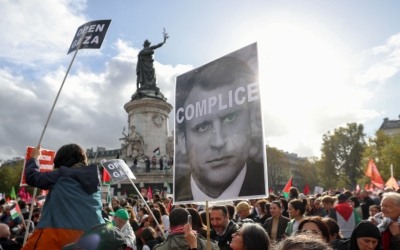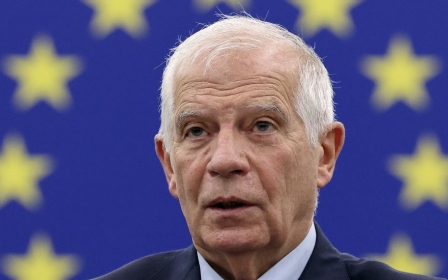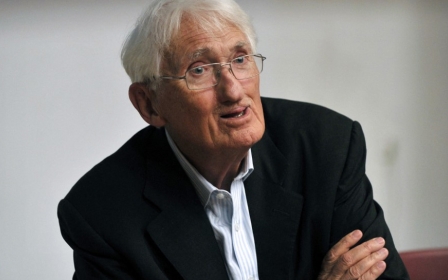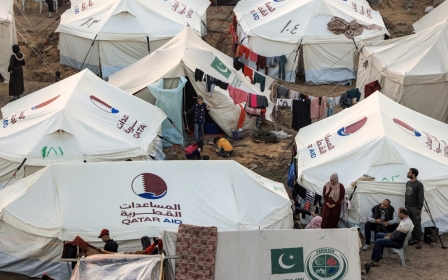War on Gaza: EU must sanction Israeli officials instead of timidly saying please
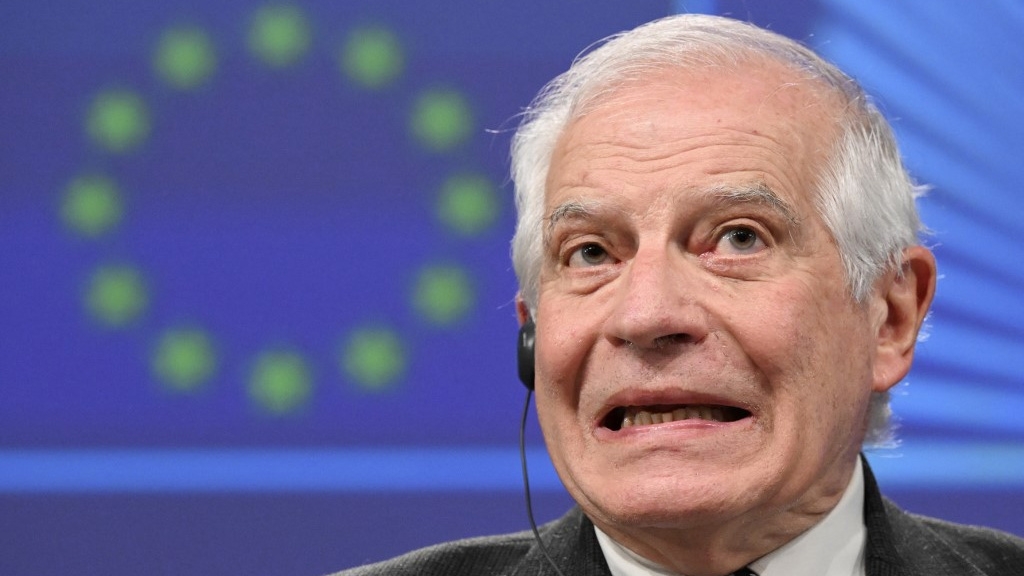
Josep Borrell, the EU’s foreign policy chief, last month said that the Biden administration’s continued provision of arms to Israel, while calling on the Israeli army to prevent civilian deaths in Gaza, is “a little bit contradictory”. Biden and other western leaders should “stop saying please” to the Israeli government and start “doing something”, Borrell added.
Yanis Varoufakis, the former Greek finance minister, accused Borrell of hypocrisy, given that EU member states - including France, Germany and Italy - continue to export arms to Israel.
But while EU member states have a common position on arms exports that is supposed to “prevent the export of military technology and equipment which might be used for internal repression or international aggression or contribute to regional instability”, Borrell has no power to enforce it.
Still, there is a method through which Borrell could apply pressure on Israel’s government - and he has so far failed to use it.
In January, Borrell signed off on a new EU sanctions regime targeting those who provide support for the Palestinian Islamic Jihad and Hamas, the two groups responsible for the 7 October attacks. Those sanctioned face travel bans and asset freezes.
New MEE newsletter: Jerusalem Dispatch
Sign up to get the latest insights and analysis on Israel-Palestine, alongside Turkey Unpacked and other MEE newsletters
The new sanctions regime makes it possible to cast a wider net than existing rules. The European Council described the measures as allowing the EU to target “the sponsors of those who sponsor the two terrorist organisations”. Six individuals were put on the sanctions list when it was announced.
Despite initial reports of reluctance from the EU to introduce a new sanctions regime, the move was unsurprising. The use of sanctions has grown enormously over the last two decades, as states have sought new ways to advance foreign policy objectives.
The new regime follows the adoption of similar measures by the UK and US, and comes on the back of proposals from France, Germany and Italy for sanctions targeting Hamas.
'Decisive steps'
Whether the new sanctions regime will be effective remains to be seen; the military wing of Hamas has been on the EU’s terrorist sanctions list since 2001, and its political wing since 2003. But what is most striking about the new sanctions is how they highlight the EU’s desire to condemn and punish some human rights violations, while ignoring - or even supporting - others.
Borrell said the new framework “shows that we are ready to take decisive steps to react to the brutality shown by terrorists on October 7. Israelis and Palestinians deserve to live in a just, lasting, and secure peace.” The European Council cited “the need to fight against violent actions that threaten peace and international security”.
Follow Middle East Eye's live coverage of the Israel-Palestine war
This begs the question: why have no such measures been put in place against the Israeli government?
An indiscriminate bombing campaign and subsequent ground invasion of Gaza has killed, injured or left missing more than 100,000 Palestinians. Hundreds of children have lost a limb. Almost two million people have been displaced. Tens of thousands of buildings have been destroyed, and huge tracts of the territory have been left uninhabitable.
If the EU and its member states genuinely want to 'bring about a change in bad or harmful policies', they must do more than simply ask the Israeli government to stop
Israeli government officials have made numerous statements that were used to demonstrate genocidal intent by the South African government in its case before the International Court of Justice (ICJ). The European Commission has said that Israel “must comply” with the ICJ’s preliminary ruling, although it was unclear how the EU would seek to enforce that, beyond polite requests.
The EU has no compunctions about sanctioning government officials or their allies. It currently has sanctions in place against Venezuelan, Russian and Iranian officials, among others. The bloc says it introduces sanctions with the aims of “promoting international peace and security; preventing conflicts; supporting democracy, the rule of law and human rights; and defending the principles of international law”.
It says its sanctions are “not punitive”, but rather aim “to bring about a change in bad or harmful policies or activities by targeting the non-EU countries, including organisations and individuals, responsible”.
Mealy-mouthed statements
It is evident that the Israeli government is pursuing policies and activities that are both “bad” and “harmful”. Indeed, the situation is so bad that the ICJ has found the government’s actions to be plausibly meeting the definition of genocide.
There is an evident need for change, and it appears unlikely that any such change will come from within Israel itself. There is still substantial domestic support for the war on Gaza, and the country’s government shows no signs of changing course. With none of Israel’s international allies putting meaningful pressure upon it to do so, why would it?
There is currently little to no incentive for Israel to halt the war, let alone even to consider ending the occupation, or pursue negotiations for meaningful, long-term peace for both Palestinians and Israelis.
If sanctions are required against Hamas to ensure peace and stability in the region, how is it that the same analysis does not apply to Israeli government officials who have ordered, directed and cheered on a military assault that leaves the prospects for peace buried under the same rubble as Palestinian children and their families?
It is utterly nonsensical and profoundly hypocritical for the EU, its member states, or any other government to continue talking about the need for peace and a two-state solution without taking any steps - beyond the occasional mealy-mouthed statements calling for restraint - to effect change.
It is often said that actions speak louder than words. In international politics, interests speak louder than principles. If the EU and its member states genuinely want to “bring about a change in bad or harmful policies”, they must do more than simply ask the Israeli government to stop. As Borrell himself put it: stop saying please and start doing something.
The views expressed in this article belong to the author and do not necessarily reflect the editorial policy of Middle East Eye.
Middle East Eye delivers independent and unrivalled coverage and analysis of the Middle East, North Africa and beyond. To learn more about republishing this content and the associated fees, please fill out this form. More about MEE can be found here.



